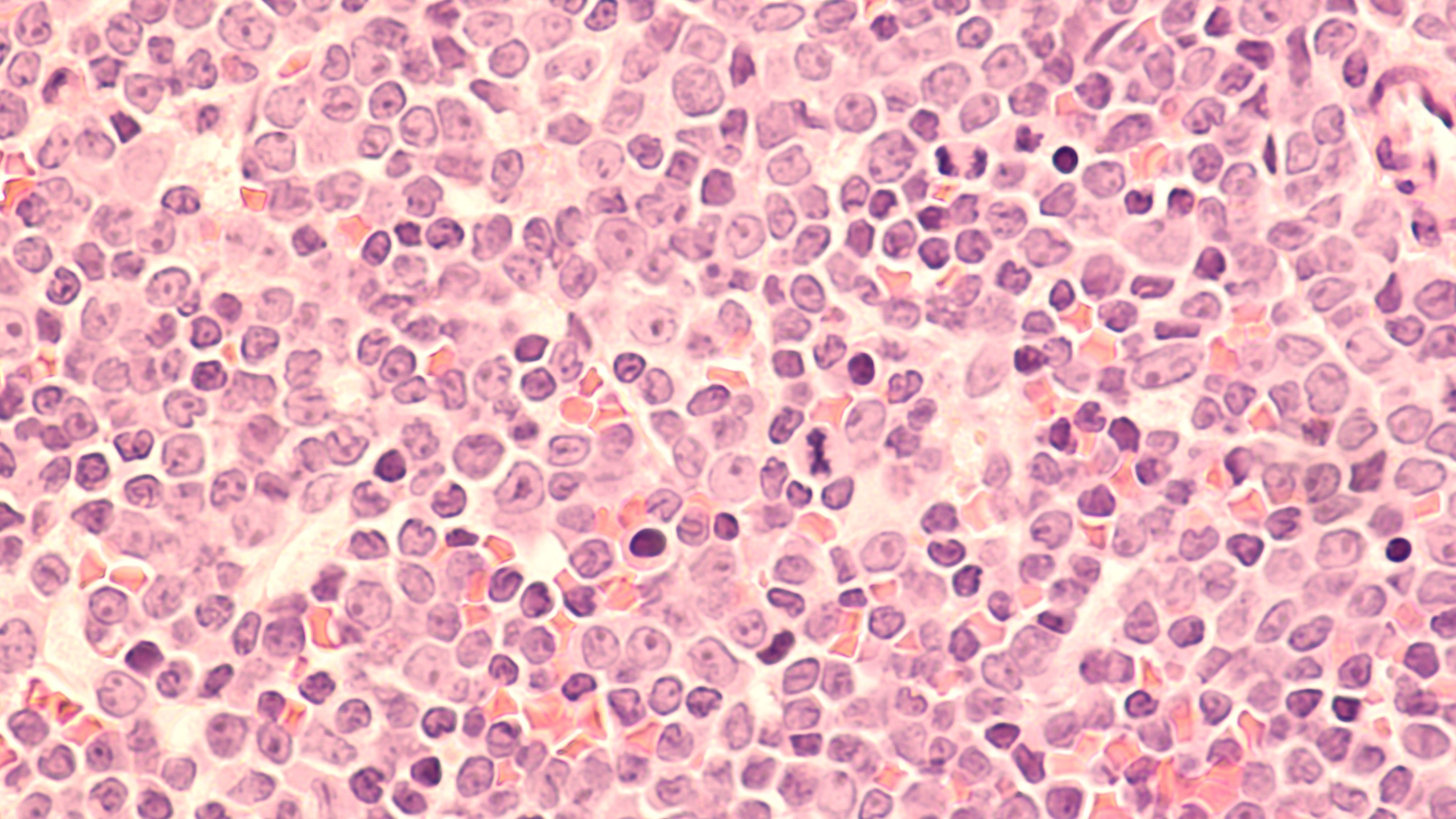FDA Places Clinical Hold on IND of Lacutamab for Lymphomas
Patients who are currently benefiting from lacutamab may continue to receive the treatment while the clinical hold is in place.

- A partial clinical hold was placed on the investigational new drug (IND) for lacutamab (IPH4102) following the report of an unexpected adverse event.
- The agent is currently being investigated in the phase 2 TELLOMAK trial in cutaneous T-cell lymphoma (CTCL) and a phase 1b peripheral T cell lymphoma (PTCL) trial.
- Data from both trials are anticipated to be announced in Q4 2023.
Lymphomas: © David A Litman - stock.adobe.com

The FDA placed a partial clinical hold on the IND for lacutamab, leading to a pause in new patient enrollment in the ongoing phase 2 TELLOMAK trial and phase 1b PTCL trial, according to Innate Pharma SA.1
The partial clinical hold was placed following 1 fatal adverse event of hemophagocytic lymphohistiocytosis. Patients who are already receiving study treatment and are deriving clinical benefit may continue treatment.
“Patient safety is of paramount importance to us, and we are currently undertaking efforts to address the FDA requests, which include incorporation of risk mitigation and management strategies for hemophagocytic lymphohistiocytosis in ongoing lacutamab studies,” said Mondher Mahjoubi, chief executive officer of Innate Pharma, in a press release.1 “Additionally, with all patients recruited into the phase 2 TELLOMAK study, we do not currently anticipate any delay for the TELLOMAK phase 2 final data due shortly.”
Lacutamab is a first-in-class anti-KIR3DL2 humanized cytotoxicity-inducing antibody. The agent is under investigation in ongoing clinical trials for treatment of CTCL and PTCL.
TELLOMAK
The ongoing, phase 2 TELLOMAK trial is evaluating lacutamab in patients with CTCL. The trial completed enrollment in Q2 of 2023 with a total of 170 patients.2
In the global, open-label, multi-cohort, phase 2 trial, patients were recruited in the United States and Europe. In cohort 1 of the study, lacutamab is being evaluated as a single agent in approximately 60 patients with Sézary syndrome. Patients must have received at least 2 previous systemic therapies, including mogamulizumab (Poteligeo). Cohort 2 is assessing lacutamab as a single agent in patients with mycosis fungoides (MF) which expresses KIR3DL2, and cohort 3 is examining lacutamab as a single agent in patients with MF that do not express KIR3DL2.
In the all-comers cohort, lacutamab is being evaluated as a single agent in patients who express KIR3DL2, as well as those who do not express KIR3DL2 in their MF. Here, investigators are looking to examine the correlation between the level of KIR3DL2 expression and treatment outcomes utilizing a formalin-fixed paraffin embedded assay under development as a companion diagnostic.
The primary end point is objective global response rate with key secondary end points of progression-free survival, duration of response, overall survival, quality of life, pharmacokinetics, immunogenicity, and adverse events.
Phase 1b Trial
Another multi-center, phase 1b study is evaluating the safety and efficacy of lacutamab as a monotherapy in patients with relapsed/refractory PTCL that expresses KIR3DL2. The open-label, single-arm study is administering patients a fixed dose of lacutamab 750 mg as a 1-hour intravenous infusion.3
In the initial cohort of the phase 1b PTCL trial, enrollment has also been completed with a total of 20 patients included. Investigators are awaiting a futility interim analysis to progress to the next stage.
The trial is assessing safety and looking at clinical outcomes, pharmacokinetics, and the immunogenicity of lacutamab monotherapy in patients with PTCL.
Final data from the phase 2 TELLOMAK trial and preliminary data from the phase 1b study in PTCL are expected to be released in Q4 2023.1
REFERENCES:
1. Innate Pharma provides update on lacutamab clinical program. News release. Innate Pharma SA. October 5, 2023. Accessed October 6, 2023. https://tinyurl.com/abwwnzws
2. IPH4102 alone or in combination with chemotherapy in patients with advanced T cell lymphoma (TELLOMAK). ClinicalTrials.gov. Updated July 14, 2023. Accessed October 6, 2023. https://tinyurl.com/4rrarnz6
3. Safety and efficacy of lacutamab in patients with relapsed/refractory peripheral T-cell lymphoma that express KIR3DL2. ClinicalTrials.gov. Updated February 2, 2023. Accessed October 6, 2023. https://tinyurl.com/4yz4ffuv
Examining the Non-Hodgkin Lymphoma Treatment Paradigm
July 15th 2022In season 3, episode 6 of Targeted Talks, Yazan Samhouri, MD, discusses the exciting new agents for the treatment of non-Hodgkin lymphoma, the clinical trials that support their use, and hopes for the future of treatment.
Listen
Later-Line CD19 and Bispecific Therapies Considered After CAR T
October 1st 2024During a Case-Based Roundtable® event, Christopher Maisel, MD, discussed third- and fourth-line therapy and barriers to bispecific therapy use in diffuse large B-cell lymphoma in the second article of a 2-part series.
Read More